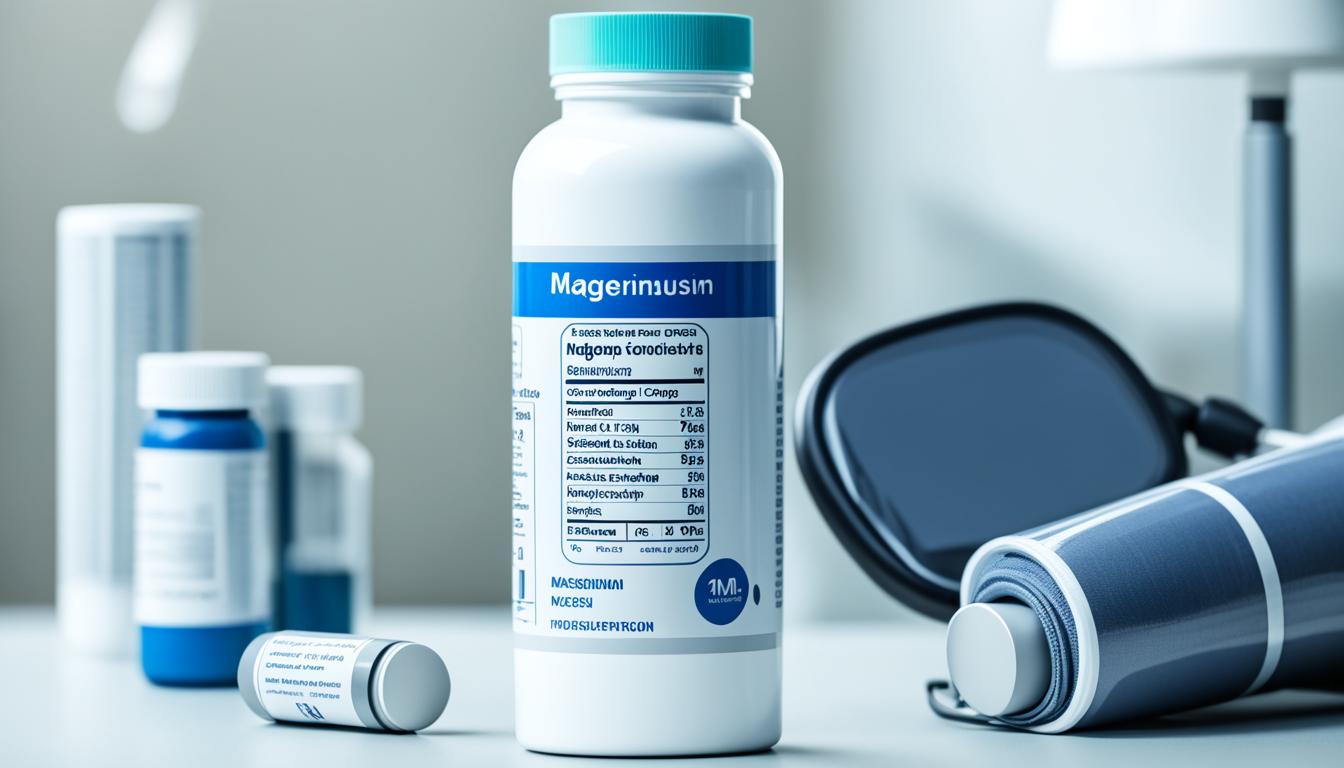Have you ever experienced the tightness in your chest or the pounding sensation in your temples? That moment when you realize your blood pressure is soaring, and you can’t help but feel a wave of anxiety wash over you. It’s a feeling that many of us are familiar with, and it’s never pleasant. But what if I told you that there’s a simple and natural way to help manage your high blood pressure?
Introducing magnesium, an essential mineral that could be the key to keeping your blood pressure in check. Research has shown that magnesium supplementation can be effective in controlling high blood pressure and promoting overall cardiovascular health. However, not all types of magnesium are created equal when it comes to blood pressure control. In this article, we will explore the best types of magnesium that you can incorporate into your routine to support your heart health and keep your blood pressure within a healthy range.
The Importance of Magnesium in Managing Hypertension
Magnesium is a vital mineral that plays a significant role in regulating blood pressure. Its importance in managing hypertension cannot be overstated. Magnesium contributes to various physiological processes that directly impact blood pressure levels, making it an essential nutrient for cardiovascular health.
One of the key roles of magnesium is its ability to relax and dilate blood vessels. By doing so, magnesium helps to reduce resistance to blood flow, resulting in lower blood pressure levels. This relaxation effect on blood vessels is crucial in maintaining optimal blood pressure.
In addition to its impact on blood vessels, magnesium also plays a crucial role in maintaining electrolyte balance. Proper electrolyte balance is essential for the healthy functioning of the cardiovascular system, and magnesium helps to regulate the levels of electrolytes such as sodium, potassium, and calcium.
Furthermore, magnesium has been linked to improved endothelial function, which refers to the health and function of the inner lining of blood vessels. Endothelial dysfunction is associated with high blood pressure and other cardiovascular issues, and magnesium can help promote endothelial health, leading to improved blood pressure regulation.
Additionally, magnesium has anti-inflammatory properties that contribute to its role in managing hypertension. Chronic inflammation is a contributing factor to high blood pressure, and magnesium’s ability to reduce inflammation in the body can help in lowering blood pressure levels.
Understanding the importance of magnesium in managing high blood pressure is crucial for choosing the right type of magnesium supplement. By incorporating magnesium-rich foods into the diet or considering magnesium supplementation, individuals can optimize their blood pressure regulation and promote overall cardiovascular health.
What Type of Magnesium is Good for High Blood Pressure
There are several types of magnesium that have been found to be effective in managing high blood pressure. Choosing the right type of magnesium can make a difference in controlling blood pressure and promoting cardiovascular health. Three key forms of magnesium that are recommended for reducing blood pressure are:
Magnesium Citrate – The Bioavailable Option for Blood Pressure Regulation
Magnesium citrate is a highly bioavailable form of magnesium, meaning it is easily absorbed by the body. It has been shown to help regulate blood pressure levels and improve cardiovascular health. Studies have found that magnesium citrate supplementation can lead to a significant reduction in both systolic and diastolic blood pressure levels. This form of magnesium is a popular choice among individuals looking to manage hypertension.
Magnesium Taurate – The Heart-Healthy Magnesium Compound
Magnesium taurate combines magnesium with the amino acid taurine, which has been shown to have heart-protective properties. Taurine plays a role in regulating blood pressure, improving heart function, and reducing oxidative stress. This combination of magnesium and taurine makes magnesium taurate an excellent option for individuals with high blood pressure who are seeking to promote cardiovascular health.
Magnesium Glycinate – Gentle and Effective
Magnesium glycinate is a gentle and effective form of magnesium that is well-tolerated by most individuals. It is bound to the amino acid glycine, which promotes relaxation and has a calming effect on the body. Magnesium glycinate can help relax blood vessels, leading to lower blood pressure. This form of magnesium is particularly suitable for individuals who may experience digestive discomfort or laxative effects with other forms of magnesium.
| Magnesium Type | Benefits |
|---|---|
| Magnesium Citrate | Easily absorbed, regulates blood pressure levels, improves cardiovascular health |
| Magnesium Taurate | Combines magnesium with heart-protective taurine, promotes cardiovascular health |
| Magnesium Glycinate | Gentle and effective, relaxes blood vessels, suitable for individuals with digestive sensitivity |
Top Magnesium for Managing High Blood Pressure
When it comes to managing high blood pressure, choosing the right magnesium supplement is crucial. There are several top options that have been specifically studied for their effectiveness in regulating blood pressure. These include:
- Magnesium Citrate
- Magnesium Taurate
- Magnesium Glycinate
These forms of magnesium have shown promising results in blood pressure regulation and overall cardiovascular health. However, it is important to note that individual response may vary, and consulting with a healthcare professional is advisable before starting any new supplement.
Remember, while these magnesium supplements have shown effectiveness in managing high blood pressure, it is important to prioritize your safety and seek professional advice. Choose a high-quality supplement and follow recommended dosage guidelines for optimal results.
Conclusion
In conclusion, magnesium supplementation can be a beneficial approach for managing high blood pressure. Among the top options for promoting healthy blood pressure levels are magnesium citrate, magnesium taurate, and magnesium glycinate. These forms of magnesium have been specifically studied for their effects on blood pressure regulation and have shown promising results.
However, it is important to make informed decisions when choosing a magnesium supplement. Opt for a high-quality product that meets your specific needs and preferences. Prioritize the advice and guidance of a healthcare professional, who can provide personalized recommendations based on your individual health profile.
By incorporating the right type of magnesium into your daily routine and following professional guidance, you can take control of your blood pressure and improve your overall cardiovascular health. Remember, making lifestyle changes, such as adopting a healthy diet and engaging in regular physical activity, alongside magnesium supplementation, can have a synergistic effect in managing high blood pressure and promoting long-term well-being.
FAQ
What types of magnesium are good for high blood pressure?
What is magnesium citrate?
What is magnesium taurate?
What is magnesium glycinate?
Which type of magnesium is recommended for high blood pressure?
Source Links
- https://www.thehealthy.com/sleep/i-tried-moon-juice-every-day-for-a-month-heres-what-happened/
- https://cred18.servecoffeebar.com/web-stories/get-fit-without-workthe-10-critical-nutrients-missing-in-most-american-dietsing-out-10-everyday-activities-that-count-as-exercise-copy/




